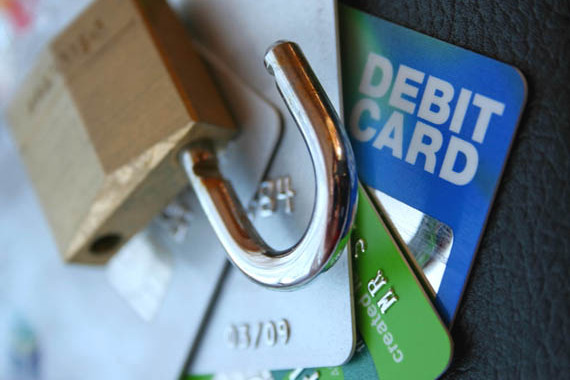
It seems like there’s a report of stolen personal information everyday — and new twists on identity theft to go along with it. Tens of millions of people have fallen victim to some sort of identity theft. They face not only the expense of resolving the situation but also may have problems with their credit history — the thing that affects a person’s ability to get a loan, land a job or even rent a home — for years after.
Taking Preventative Measures
There are quite a few steps you can take to protect your own identity:
- Shred sensitive documents: Shredding any documents with your financial information, Social Security number or other sensitive information is a bare minimum to protect your identity. It’s actually worth running less crucial documents through the shredder, as well — while they may not offer any information to someone digging through your trash, the more papers you shred the harder it is to piece a document back together.
- Use a locking mailbox: For an identity thief, getting their hands on your paperwork can be just as easy as opening your mailbox and pulling out a few envelopes. Having a lock on your mailbox can protect you. You may also want to limit how long mail sits in your mailbox, as well — have the post office hold you’re mail if you’re out of town.
- Contact the post office if there’s major changes in your mail: If you suddenly stop getting mail, check to make sure that no mail forwarding was set up without your knowledge. You should also contact the post office if you think your mail may have been stolen.
- Put your cards, passports and other documents somewhere safe: The fewer pieces of sensitive information you carry around with you every day, the less chance you have of losing something. If you’ve got a credit card you don’t normally use, put that card away at home. It’s worth creating a safe place at home where you can lock up credit cards, your Social Security card, passwords and other personal documents.
- Change your PINs and passwords regularly: While I think most people have gotten the full on lecture about not using obvious passwords (like your birthday), it’s rare to find someone who changes their passwords on a regular basis. Changing your password regularly should go double for your bank and credit card accounts, as well as your email — the place where companies often send you your new passwords.
- Protect your computer: It may seem that your computer wouldn’t be a main source of personal information, but it offers an identity thief tons to work with, such as the credit card information you use to shop online. Keeping your anti-virus software and spam filters up to date should be a priority no matter how much or how little you use your computer.
- Keep in mind how much information is already out there about you: When you’re setting passwords and security questions, remember that information like the name of your high school, your mother’s maiden name and even your first pet are probably out on the internet somewhere — maybe you blogged about them, maybe you filled in a survey. Try
- Minimize who actually has your information: Many of the forms that ask for your Social Security number and other personal information don’t actually need it. You’re well within your rights to ask how a particular organization plans to use particular bits of information before handing them over.
- Check into security breaches: If you hear that your information could have been included in a security breach, it’s worth checking into. Banks and other companies with access to your information will usually be able to tell you just what information got out and what sort of problems to look for. In some cases, those organizations will provide some help monitoring your credit to help protect you.
There are more than a few companies that offer identity theft protection services, but the simple fact is that few of these companies can offer anything more than you can do yourself. If it will provide you some peace of mind, using such a service can be worthwhile, but I would recommend at least considering doing without.
Keeping An Eye On Your Credit
Unfortunately, you still run a risk of identity theft no matter how many precautions you take. The fact of the matter is that your information shows up in plenty of places not under your control. With the ever-growing numbers of security lapses, misplaced laptops and the like, there’s still a respectable chance that someone will be able to get their hands on your information.
Keeping a close eye on how your personal information is being used can prove even more important than preventing identity theft. Checking your credit report on a regular basis, for instance, will help you make sure that you are held responsible for only the credit accounts that you actually opened. You can get free copies of all three of your credit reports once per year through AnnualCreditReport.com.. Don’t limit your observances to your credit report, though: the same goes for ensuring that you just what is being charged in your name. That means carefully going over your statements and each month.
While it may not be quite as useful to find out about identity theft after the fact, you can still minimize the harm done to your credit if you catch any instances of fraud early.

